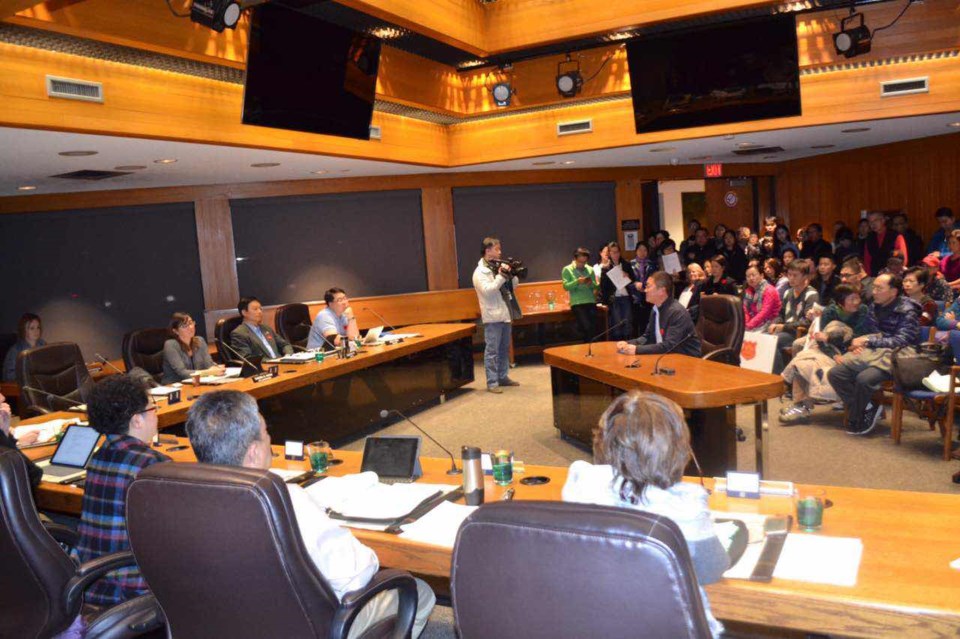After city council unanimously chose an anti-pot position in October, Richmond’s school board has also voted to oppose the legalization of non-medicinal marijuana.
All board members, except Debbie Tablotney and Sandra Nixon, voted yes last week to oppose legalization and “fully support” the city’s October resolution.
The school board’s stance was proposed by trustee Jonathan Ho, who’s also a member of the 2018 Marijuana Legalization Concern Group, which is led by Coun. Chak Au.
Ho’s proposal included sending a letter from the school board to the three tiers of government (municipal, provincial and federal), in which they express their opposition to the forthcoming marijuana legalization and voice concerns over the impact on students’ health and safety.

More than 100 residents attended the school board meeting, at which a handful of parents spoke up, all supporting the board’s decision.
“Many parents have come to us and expressed their worries about the impact on students if cannabis is legalized,” Ho told the Richmond News.
“I think it’s important for the school board to do something in Richmond and to voice our opinion on this issue.”
Ho said the legalization of marijuana sends the wrong message to students and conflicts with current education on drugs.
“We have a program called Drug Abuse Resistance Education (DARE) delivered by the RCMP every year for students in Grade 5, providing an opportunity for them to learn about how drug use may impact their health and future,” added Ho.
“On the one hand, we ask students to stay away from drugs including marijuana because it’s harmful to their health and future; on the other hand, it is legalized. Then what is the message to students?”
Concerns discussed at last week’s meeting focused on marijuana-related products and drug-impaired driving.
“We ask the government to ban all food products that contain marijuana. For example, marijuana in cakes, candies, cookies and drinks because children may accidentally consume them,” said Ho.
The board also asked for zero tolerance on drug-impaired driving, which, according to Ho, increases the risks to children on the road every time they go to and from school.
As the federal government sticks to its July 2018 deadline to legalize cannabis nationwide, Ho said the board wants the government to take its concerns into consideration when writing the new legislation next year.
“All marijuana products must be clearly labeled and have warning signs similar to cigarettes,” added Ho.
Tablotney, meanwhile, said she voted against the board’s stance because many teenagers are consuming marijuana right now and legalization could allow the federal government to monitor and protect them.



